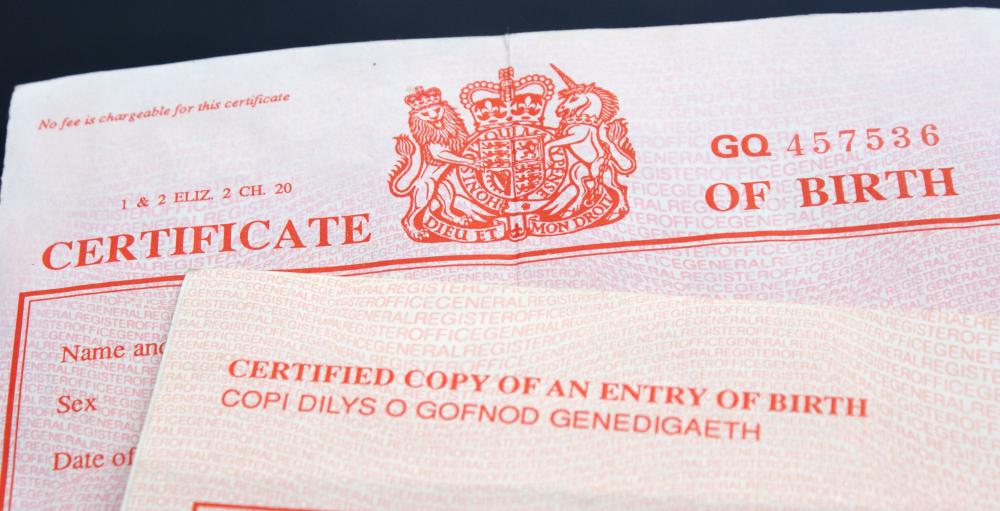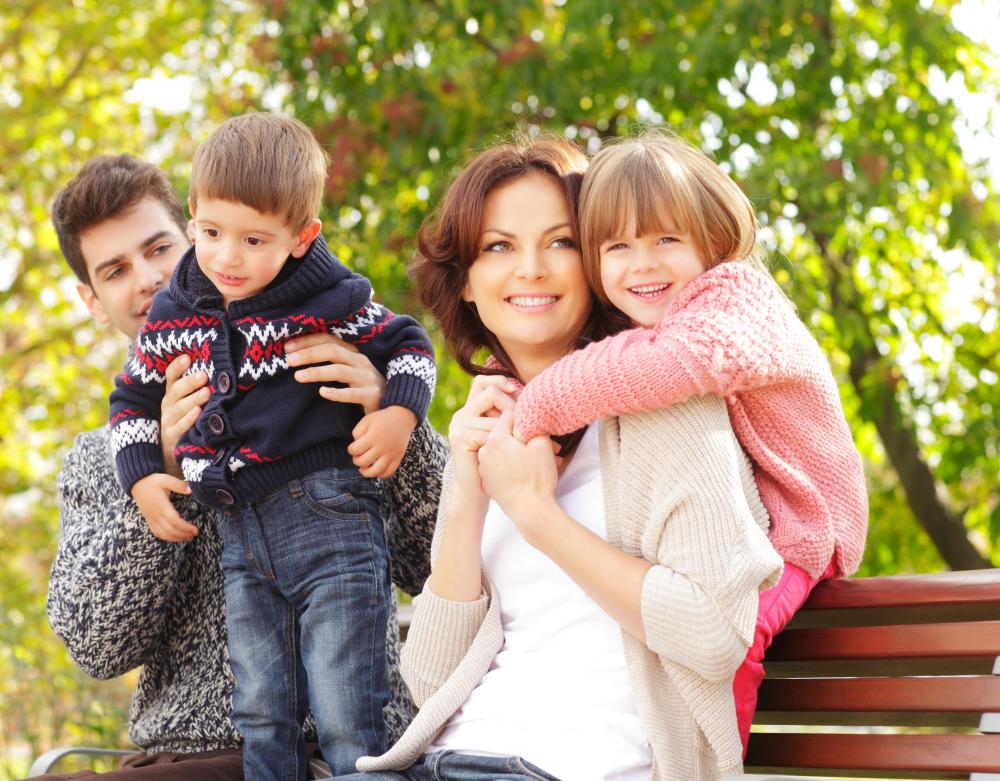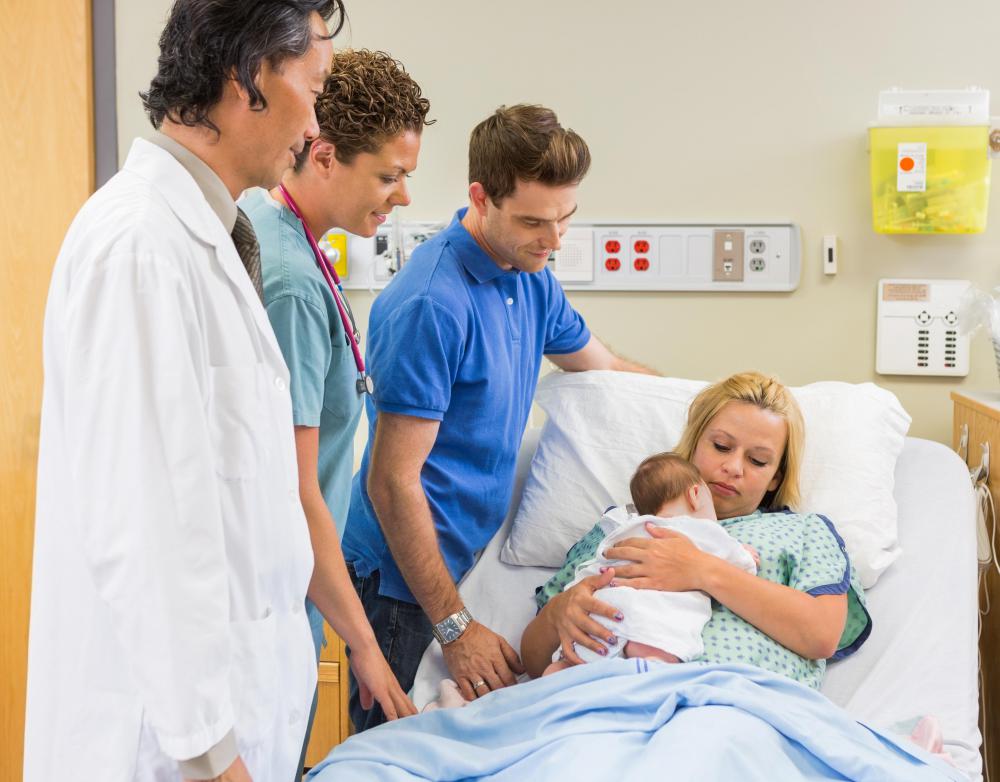At InfoBloom, we're committed to delivering accurate, trustworthy information. Our expert-authored content is rigorously fact-checked and sourced from credible authorities. Discover how we uphold the highest standards in providing you with reliable knowledge.
What Is Closed Adoption?
Closed adoption is an adoption in which the records of the adoption are kept sealed, creating a situation in which the birth parent is not involved with the adoptee's life. You may also hear closed adoption referred to as “secret” or “traditional” adoption, although it is not, in fact, traditional at all. Closed adoption largely arose in the 20th century, in response to changing social values about adoption. The opposite of a closed adoption is an open adoption, in which the records are left open, creating the potential for contact between the birth parent and the adoptive family.
In a classic closed adoption, the birth parents decide to give their child up for adoption during the pregnancy and they contact an adoption agency, which handles the placement. Once the child is born, the birth mother surrenders the baby, and he or she is given to the adoptive family. The child's birth certificate may be changed to reflect the adoption, and the birth mother is not given any information about the adoptive family.

There are advantages and disadvantages to closed adoption. Some birth parents feel that it offers closure, allowing them to move on after the birth, and some also value the secrecy, especially if they were having an extramarital affair or they fear criticism for being unwed mothers. Adoptive families sometimes appreciate the simplicity of closed adoption, as it precludes an attempt to take the child back, or confusion about coparenting, and it also protects the child from unstable birth families.

However, some people feel that closed adoption is extremely problematic. It sets up a situation where a child may never be informed about his or her adoptive status, which could cause problems later in the child's life, especially if the adoptive child's birth parents have family histories of health problems. It also cuts the child off from his or her heritage, and it can make adopted children feel like their birth parents didn't want them, as it offers no opportunity for birth parents to communicate about the reasons behind the choice to give the child up for adoption. Some people also feel that closed adoption creates feelings of shame around the topic of adoption.

Several organizations facilitate contact between birth parents and adoptees who are interested in connecting later in life. These groups provide records searches or offer registries of people who are seeking each other out. In a situation where a child or birth mother wants to get in touch, a letter will typically be sent by a third-party intermediary, indicating that contact is desired and leaving the decision up to the recipient of the letter.
AS FEATURED ON:
AS FEATURED ON:

















Discussion Comments
Closed adoptions stink. I’m an American, a New York adoptee with no right to know who I am or to know who my birth mother/family are.
Yes, an American with no rights. If this was you and you needed to know what belongs on your birth certificate and health history on your birth family, no problem. Here, all you paperwork that belong to you on who you are, so why in the hell is it so freaking hard for us adoptees to get what belongs to us on who we are and who is our birth family? Help out us adoptees, please.
Closed adoption only suits the birth family and the adoptive family. Every human has the right to know their lineage, their cultural heritage, and their medical history. Anyone who says closed adoption is "in the best interest of the child" has no idea how closed adoption effects that child well into their adulthood, and maybe for their entire lives. Do your research. Stop the torture. End closed adoptions.
I wouldn't want to carry a baby for 9 months and go through all that pain just to give him/her up. And I don't believe in abortion so I wouldn't do that either.
@anon107582- There is also something called the Putative Father Registry in some states. This allows men who think that they might have fathered a child to have their rights protected.
A putative father is a man who thinks he fathered a child but was not married to the child’s mother at the time.
@anon107582- The father absolutely has rights! However, it seems as though the biological father’s rights have been violated many times over the years. There have been several court cases over the years that have shed some light on the subject.
One case that comes to mind is the “Baby M” case. This happened in 1996 when a mother placed her child up for adoption without the father’s consent. He never signed any consent papers and he actually contested the adoption. The courts had already adopted the baby out. After this, the Pennsylvania State Supreme Court sent the message out to all adoption agencies that they must have consent from both parents.
This case went on for four years. The courts awarded the biological father custody of his child. The adoptive parents lost the child that they had raised since birth.
What if father wants the baby and knows it is his. Is it just up to the mother to go ahead and adopt?
Post your comments